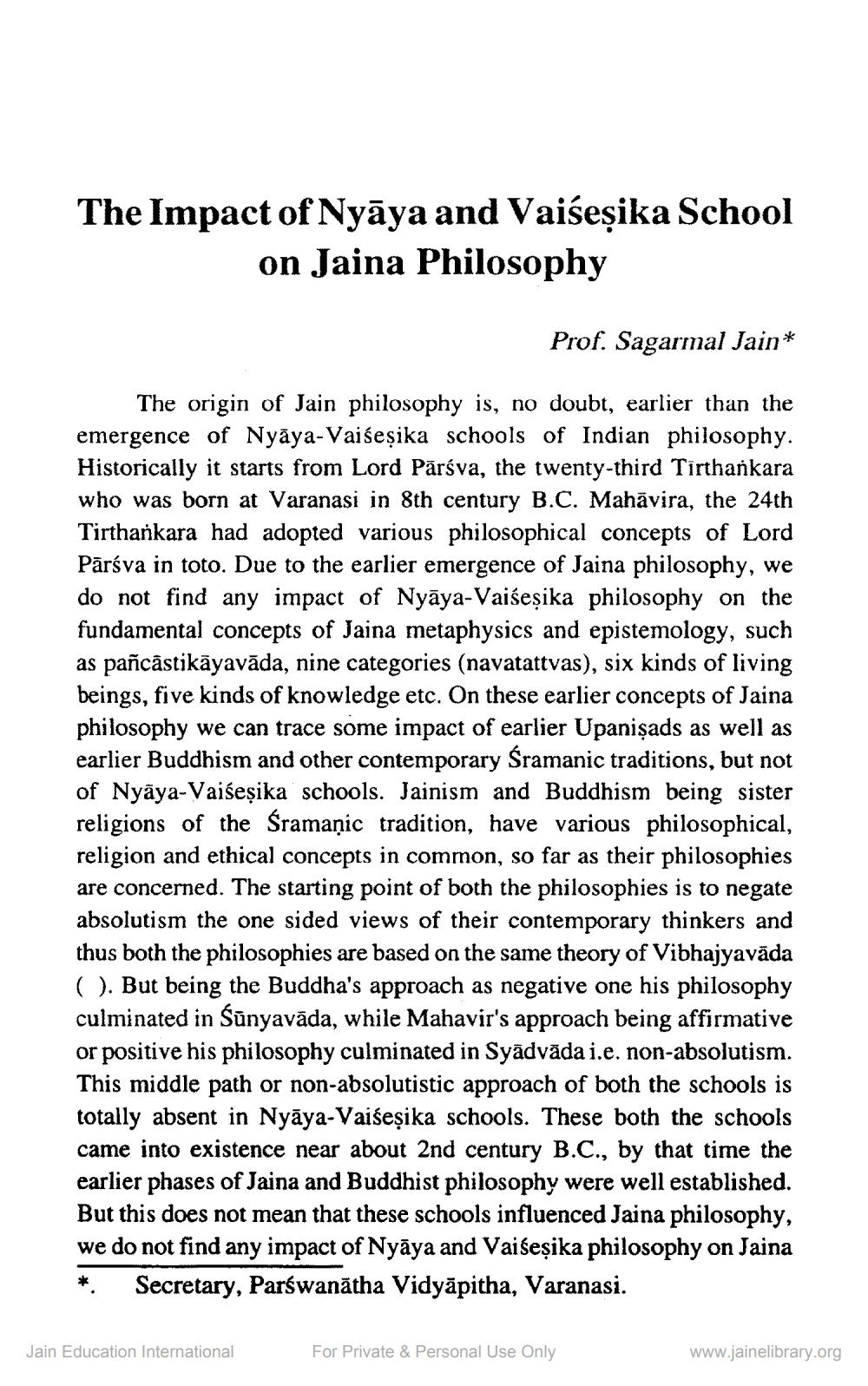________________
The Impact of Nyaya and Vaiseṣika School on Jaina Philosophy
Prof. Sagarmal Jain*
The origin of Jain philosophy is, no doubt, earlier than the emergence of Nyāya-Vaiśeṣika schools of Indian philosophy. Historically it starts from Lord Pārśva, the twenty-third Tirthankara who was born at Varanasi in 8th century B.C. Mahavira, the 24th Tirthankara had adopted various philosophical concepts of Lord Pārśva in toto. Due to the earlier emergence of Jaina philosophy, we do not find any impact of Nyāya-Vaiśeṣika philosophy on the fundamental concepts of Jaina metaphysics and epistemology, such as pañcâstikāyavāda, nine categories (navatattvas), six kinds of living beings, five kinds of knowledge etc. On these earlier concepts of Jaina philosophy we can trace some impact of earlier Upanisads as well as earlier Buddhism and other contemporary Śramanic traditions, but not of Nyaya-Vaiseṣika schools. Jainism and Buddhism being sister religions of the Śramanic tradition, have various philosophical, religion and ethical concepts in common, so far as their philosophies are concerned. The starting point of both the philosophies is to negate absolutism the one sided views of their contemporary thinkers and thus both the philosophies are based on the same theory of Vibhajyavāda ( ). But being the Buddha's approach as negative one his philosophy culminated in Śūnyavāda, while Mahavir's approach being affirmative or positive his philosophy culminated in Syādvāda i.e. non-absolutism. This middle path or non-absolutistic approach of both the schools is totally absent in Nyaya-Vaišeṣika schools. These both the schools came into existence near about 2nd century B.C., by that time the earlier phases of Jaina and Buddhist philosophy were well established. But this does not mean that these schools influenced Jaina philosophy, we do not find any impact of Nyāya and Vaiseṣika philosophy on Jaina Secretary, Parśwanatha Vidyapitha, Varanasi.
Jain Education International
For Private & Personal Use Only
www.jainelibrary.org




